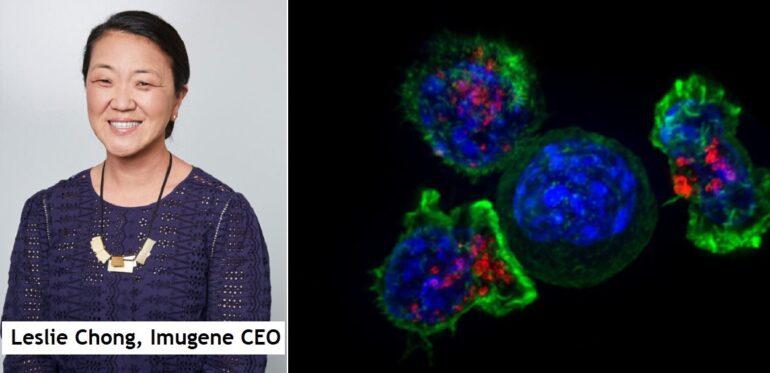May 24, 2022
SYDNEY, Australia & LOS ANGELS, CA—Scientists from Imugene Limited, a clinical-stage immune-oncology company, and the City of Hope, one of the largest cancer research and treatment organizations in the United States announced they have injected the first human patient with a new “cancer-killing virus.”
Tests showed the virus, known as Vaxinia, reduced the size of colon, lung, breast, and ovarian tumors in animals.
Vaxinia has been genetically engineered to infect, replicate in and kill cancer cells, while sparing healthy cells. In contrast, other immunotherapies like checkpoint inhibitors have been effective in certain cancers, however, patients often relapse and eventually stop responding to or develop resistance to the treatment, according to researchers.
Vaxinia can prime the patient’s immune system and increase the level of a protein called PD-L1 in tumors, making immunotherapy more effective against cancer.
“Our previous research demonstrated that oncolytic viruses can stimulate the immune system to respond to and kill cancer, as well as stimulate the immune system to be more responsive to other immunotherapies, including checkpoint inhibitors,” said Daneng Li, M.D., principal investigator and assistant professor of City of Hope’s Department of Medical Oncology & Therapeutics Research. “Now is the time to further enhance the power of immunotherapy, and we believe CF33-hNIS has the potential to improve outcomes for our patients in their battle with cancer.”
Phase 1 clinical trials aim to recruit at least 100 cancer patients with metastatic or advanced solid tumors in 10 trial sites in the United States and Australia. They’re expected to last about 24 months.
Vaxinia will be given in low doses or injected directly into tumors or intravenously.
City of Hope exclusively licensed patent rights covering CF33 to Imugene Limited, a company developing novel therapies that activate the immune system against cancer. Imugene has given CF33-hNIS the name Vaxinia.
“Interestingly, the same characteristics that eventually make cancer cells resistant to chemotherapy or radiation treatment actually enhance the success of oncolytic viruses, such as CF33-hNIS,” said Yuman Fong, M.D., the Sangiacomo Family Chair in Surgical Oncology at City of Hope and the key developer of the genetically modified virus. “We are hoping to harness the promise of viralogy and immunotherapy for the treatment of a wide variety of deadly cancers.”
Imugene M.D. and CEO Leslie Chong said, “The dosing of the first patient in our VAXINIA study is a significant milestone for Imugene and clinicians faced with the challenge of treatment for metastatic advanced solid tumors. Professor Yuman Fong and the City of Hope team have provided outstanding research. In addition to the positive preclinical results, we’re incredibly eager to unlock the potential of VAXINIA and the oncolytic virotherapy platform.”
Feature Images via Imugene & NIH


